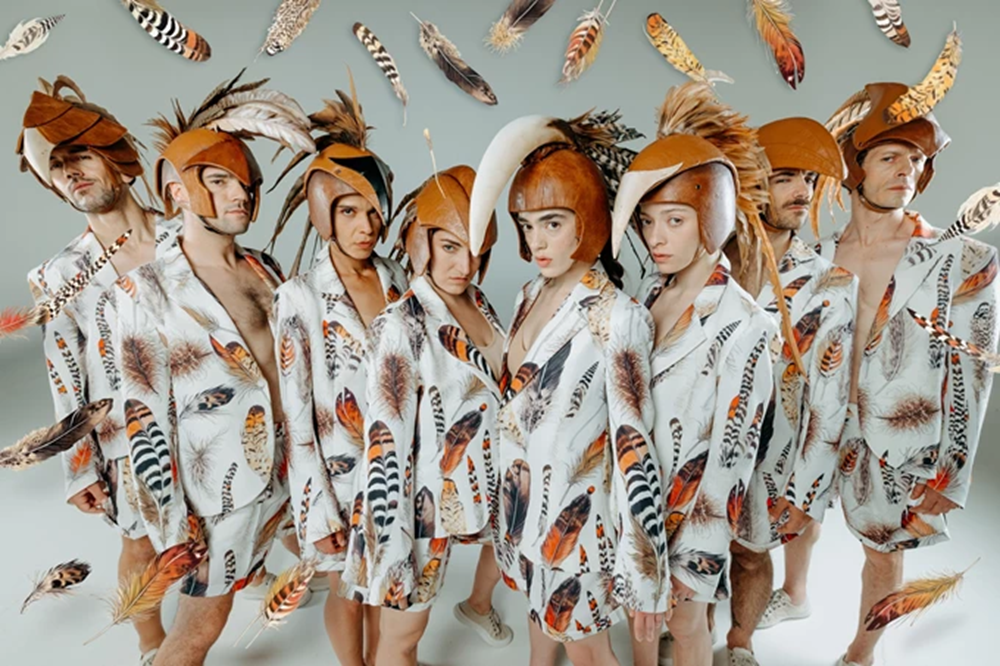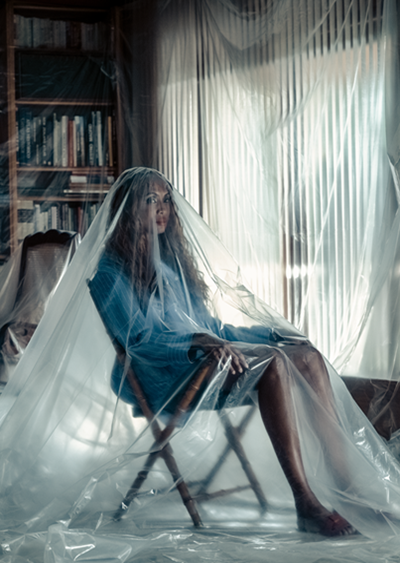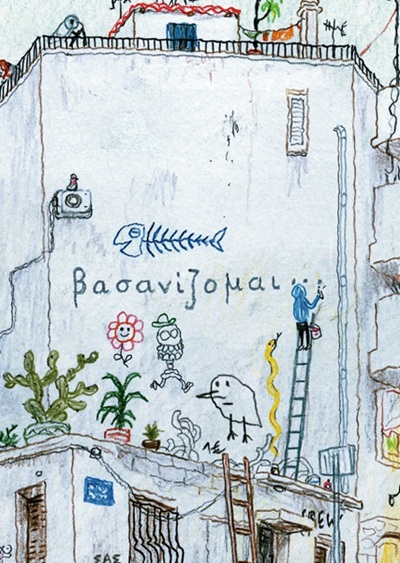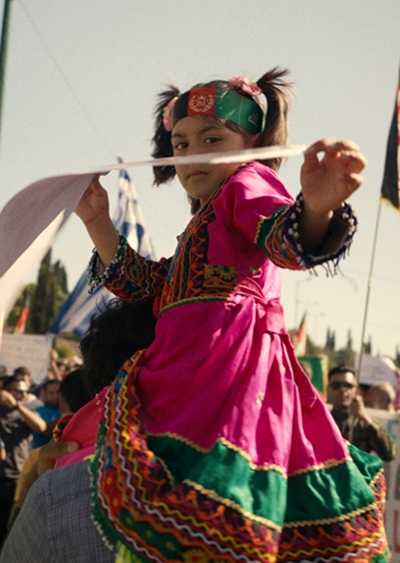
The Birds is the highest poetic creation of ancient Greek comedy. Written in 414 BC, Aristophanes’ comedy identifies the profound political and social problems (injustice, chaos in the courts and government institutions) that force the individual to seek a new city and a change of course. In The Birds, the comic poet’s ingenuity is at its peak when Pisthetaerus and Euelpides arrive in the land of the birds and devise a plan to join forces with their feathered companions – whom early humans revered more than the gods – and shake the reign of the Olympian gods.
Aris Biniaris‘ version is a complete artistic proposal, with a unified style and with the director’s familiar experiments in terms of the movement of the actors and the sound. In this way, the performance we experienced refrained both from the revue spectacle aesthetics of the past decades and from the deconstructive school that obsessively insists on the “death of the author”. Aris Biniaris understood that Aristophanes is more like that wonderful grandfather who allows us on summer evenings to sneak into his workshop and play with his tools.
The aesthetics of the performance are certainly of high standards. Speaking – in Aristotelian terms – of the “opsis”, one admires the production design by Paris Mexis, the dominance of the chthonic colours in the scenography, the costumes of the Chorus, the balanced comic quality of the costumes of the usurpers and especially the masks. The masks – an integral element in ancient Greek theatre – play an important role in the version of Aris Biniaris and Elena Triantafylopoulou in two cases. On the one hand, during the initiation ceremony of the two mortals in the ways of the birds (a scene inspired by the customs of the indigenous people) and during the intervention of the gods. Indeed, the masks constructed by Michael Lagoubardos for Prometheus, Poseidon and Hercules are breathtaking, evoking African tradition and in fact emphasizing the universal nature of great poetry such as that of Aristophanes. The spectacle of the gods appearing to the audience at Epidaurus must have been chilling-in the sense of “unprecedented.”

In an approach to the play that led Giorgos Chrysostomou to a brilliant monologue against the tyranny of the gods and highlighted the range of kinesiology that Odysseas Papaspiliopoulos can reach – especially at the beginning of the show-, there are some touches that would make it fly even higher. The reference to a greater care that could have been taken in the delivery of the speech, since the fast pace of the play’s performance combined with the microphones deprives the viewer of the opportunity to clearly hear some of the rhymes during the invasion of the Poetess and Meton. Alongside the cheerfulness that is indeed brought to the show by Konstantina Takalou (Poetess/Iris), Stelios Iakovidis (Oracle Man/Prometheus), Errikos Miliaris (Meton/Heracles) and Marios Panayiotou (Inspector/Poseidon) in the supporting roles, Thanasis Isidorou stands out as the Informer, straddling the line between commedia dell’arte and the theatre of puppets, with a voice placement that moves between flattery and… artificial intelligence.
In conclusion, Aris Biniaris proved that the high taste, imagination and vision of his own “cloud-cuckoo-land” give feathers and drags the audience into a mystifying experience, with Aristophanes peeping through the clouds of the sky and winking playfully at us from time to time.
The Show
Translated by Tassos Roussos
Directed by Aris Biniaris
Dramaturgy-Adaptation Elena Triantafyllopoulou – Aris Biniaris
Set Design- Costumes Paris Mexis
Music Composition Alexandros Drakos Ktistakis
Kinesiology Alexandros Vardaxoglou
Lighting Design Vangelis Mountrichas
Assistant to the Director Nefeli Papanastasopoulou
Assistant to Set and Costume Designer Alegia Papageorgiou
Cast (in alphabetical order) Giorgos Chrysostomou, Stelios Iakovidis, Thanasis Isidorou, Tasos Korkos, Kostas Koronaios, Sofia Koulera, Avgoustinos Koumoulos, Maria Kyrozi, Errikos Miliaris, Marios Panagiotou, Odysseas Papaspiliopoulos, Kyriakos Salis, Alexia Sapranidou, Konstantina Takalou, Eirini Tsellou, Michalis Valassoglou







Leave A Comment